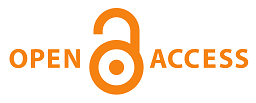Sleep disorders are one of the significant problems in the modern society. Current research is on the lookout for the nonpharmacological ways to improve sleep quality and slow wave brain activity that plays a crucial role in homeostasis and cognitive functions. One of the promising approaches is acoustic stimulation that is phase-locked to deep sleep EEG rhythms. It was already shown that such stimulation improves slow wave brain activity. This article describes Dreem: a wireless consumer device that performs acoustic sleep stimulation in home conditions. The device has dry EEG electrodes, photo sensor for pulse oximetry, and an accelerometer. The inbuilt software detects deep sleep, performs audio stimulation on the ascending slope of the delta wave and does automatic sleep staging. In the pilot study of the device, three subjects made 10 to 24 recordings of night sleep with EEG recording and stimulation. The raw data recorded by the device is available to the user and is sufficient for sleep staging and basic sleep analysis. Automatic hypnograms reflect the structure of a normal night sleep. EEG averaged by the stimulation markers demonstrated the high efficacy of slow wave detectors and placement of stimulations on the ascending slope of a delta wave. Dreem device is of interest for the sleep researchers as an easy to use tool for an out-of-lab data acquisition.
Keywords: delta waves, sleep, sleep stimulation, slow wave activity, wireless devicesAll articles can be accessed under Creative Commons Attribution 4.0 International Public License (CC BY 4.0).












